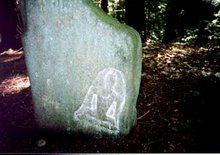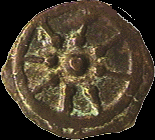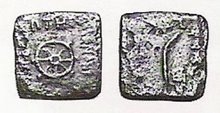Saturday, May 26, 2018
Mother, dearest
Parishioners at the Stornoway High Church on the Isle of Lewis in Scotland still remember the dignified blonde who came from America every summer.
She walked with a formal, erect posture, provoking whispers about how she’d picked up her “airs and graces” in New York, where she’d married a rich man.
But mostly they remember her speaking Gaelic as though she’d never left.
The woman, Mary Anne MacLeod, is the mother of Donald Trump, the spoiled rich kid turned President of the United States. And the contrast between her humble immigrant roots and the 1950s McMansion where she wound up is the key to understanding Trump’s deep insecurity.
MacLeod spent the first 17 years of her life in Tong, a fishing village on the Isle of Lewis, in the Outer Hebrides, closer to Iceland than to London. Though her son was raised in a mansion of sorts in Queens, she grew up among impoverished islanders in a two-room rented cottage crammed with her and 10 siblings.
Most photos show a house that they moved into much later – after Mary finished the 8th grade and went to work full-time to pay her share (1/6th) of the rent.
On every other day of the week, MacLeod’s family worked hard, digging peat to burn, hauling fishing nets in the icy rain and farming whatever meager crops they grew in the rocky soil.
As a girl, MacLeod saw very few examples of how rich people lived. An English opium baron had purchased the entire island in the mid-19th century and built himself a turreted gray stone Victorian castle on a plot of land overlooking Stornoway.
The family’s church was on a street lined with handsome brick mansions belonging to the families of local merchants. To distinguish themselves from their impoverished and fish-smelling counterparts, that except for Sundays, residents of these mansions forbade the poor to even walk on their street. That ban included the MacLeod family, local residents say.
Poor islanders had been abused by the wealthy for years. In her grand-parents generation, the British expelled tens of thousands of Scottish peasants in order to empty the land for sport hunting and sheep. Thousands immigrated to North America. Those left behind clung to farming, fishing and speaking Gaelic. MacLeod did not hear English until she enrolled in school, which was ended after the 8th grade.
Another crisis pushed MacLeod to leave. When World War I ended, a winter shipwreck just yards from shore, killed 200 soldiers returning from the front, decimating the male population.
That shortage of men prompted her to join her older sisters in New York in 1929.
The exodus from Lewis was so dramatic, that the same month the 17-year-old sailed away on a steamer for New York, her local paper, the Stornoway Gazette editorialized: “Our straths and glens will soon be peopled only with middle-aged and elderly people.”
Six years after she arrived in New York, the blue-eyed youngest member of her family, met a blonde, mustachioed, first-generation German-American at a dance in Queens. They later married.
Fred Trump was almost a nobody. He later became a home builder in suburban New York – financed by his mother, Elisabeth Trump.
His wife spent her adult years creating the pomp she’d only viewed from a window as a girl. Despite her lack of education and lowly roots, she liked to wear furs and be chauffeured in a Rolls Royce around plebeian Queens, New York.
In his book, Trump: Art of the Deal, Donald wrote about her passion for the trappings of wealth.
Her son Donald inherited her obsession with luxury—and his own insecurity about not being born to old money.
He built himself a miniature Versailles, his gold and marble triplex in Trump Tower—designed by another immigrant with queenly tastes, first wife Ivana Trump.
And because his mother left Scotland without a high school education, he has sneered at people with academic degrees. “The most important thing I learned at Wharton was not to be overly impressed by academic credentials,” Trump wrote in The Art of the Deal. “It didn’t take me long to realize that there was nothing particularly awesome or exceptional about my classmates…” In the same book, he worried Ivanka “looks down on him.”
But while MacLeod had airs and graces, she never turned her back on her roots. She returned to Tong, year after year, lapsing into Gaelic the minute she arrived. The islanders cite the Gaelic saying “The bird sings best in its nest.” Trump, though, never came with her. The people of Lewis were amused of their American son, Donald, when they first learned he was a reality-TV celebrity. But after he strong-armed mainland Scots near Aberdeen into land concessions for his “best golf course in the world,” and as his political career swerved into scandal, those in his mother’s hometown grew ashamed of him.
A Facebook page called Isle of Lewis Against Trump is decorated with a photograph of a Trump troll doll. “He is not proud of his mother’s humble beginnings,” said the novelist and poet Kevin MacNeil, who lives on the Isle of Lewis. “It is hard to understand how in a single generation the values of altruism, togetherness and sheer human decency were lost. Selflessness became selfishness. A supportive sense of community became a vain-glorious arrogance.”
Trump has claimed his mother came to America on a holiday and decided to stay in the big city, which causes islanders roll their eyes.
It’s just another Trumpian alternative fact—like his claim that his German-American father was actually Swedish.
Trump’s older sister used to accompany their mother to Lewis, but Donald visited Tong only once while he was in Scotland while inspecting work on his golf course in 2008.
Scottish journalists clocked his time on the island at 180 minutes, with just 97 seconds at the MacLeod cottage.
Beyond his golf course, Trump seems to have little use for his mother’s humble roots. His living relatives—second cousins mostly—have stopped talking to journalists since his election.
What would MacLeod make of her famous son now? “I think his mother would be horrified,” his cousins said.
Subscribe to:
Post Comments (Atom)






























No comments:
Post a Comment